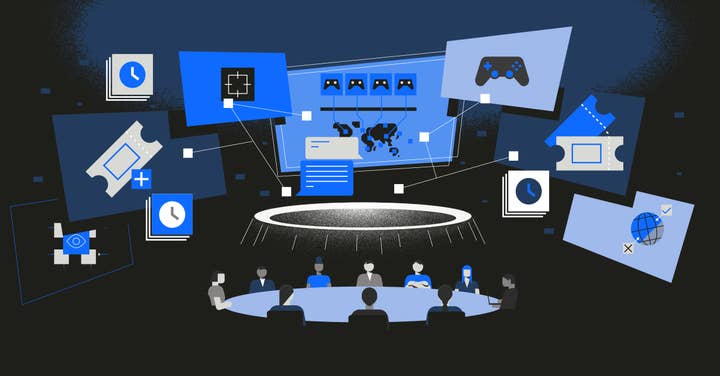How to nurture a holistic, proactive, approach to technology problem-solving
Improbable discusses the various options for studios looking to secure a support team for its multiplayer games
Depending on the game, even just a few moments of downtime can spell a huge loss in revenue for a studio. And since every game - even those originally based on an off-the-shelf package - is uniquely complicated, having been designed or customised by different teams with different tech, there's a vast range of potential problems.
In-house and self-service support have strengths and weaknesses
Some studios build their own in-house support teams. A bonus of this approach is the holistic, long-term vision it affords: when you have a team invested in your product, they're more likely to take a proactive approach to ensuring its success. But the additional headcount is a big commitment. Plus, there's the challenge of finding (and keeping) people with the relevant experience and expertise.
Other studios rely on outsourced services. In contrast, it's relatively affordable and you can walk away whenever you like. But these services are predominantly technology providers, offering little support other than self-service FAQs, documents and tutorials. There are no humans connecting dots or thinking outside the box to come up with more sustainable solutions. Plus, thanks to their number of customers, waiting times for the ticket desk to respond can be lengthy - far from ideal when your studio's livelihood relies on a quick fix.

A holistic, proactive approach to problem-solving is more effective in the long-term
Most studios will agree a proactive approach to problem-solving is a surer route towards a game's long-term success. Rather than simply firefighting issues as they arise, each challenge should also be an opportunity to understand why it happened, de-risk for the future, and even review and optimise the overall health and efficiency of your game.
Sure, speedily resolving breaks is key. But just as important is making sure you've got the right infrastructure in place, costs are being managed, and you're offering the best possible player experience from a technical as well as design perspective.
For technical directors who understand the theory, but don't necessarily have real-life experience, being able to talk through implementation with an expert not only increases certainty, it can also reveal alternative options and opportunities. As per the adage about teaching a person to fish, a collaborative, communicative approach to technical support is ultimately more valuable for studios.
Direct-line support is a human approach without the commitment
Many studios seek a middle-ground between building a costly, high-commitment in-house team and subscribing to impersonal, tunnel-vision self-service options. Direct-line support might just fill that void. A bolt-on team of humans that, crucially, can be unbolted, direct-line support supplies the hands-on engineering expertise to help mitigate risk across the back-end ecosystem, without the added headcount.
Partnering with a direct-line support team lets you rely on the strategic thinking and tailored support of experts, rather than having to figure issues out by yourself. You'll get an account manager who acts as a lynchpin between the various technical experts at their disposal - similar to a first-response unit, they work out what's needed and pull in the appropriate brains. Along with providing fast-turnaround technical support in the likes of war rooms, they'll coordinate testing in the pre-launch period, offer engineering and process support, and review player analytics to suggest future improvements to your game. That way you can focus on what you do best.
How RETO MOTO used direct-line support to launch Heroes & Generals on Epic Game Store
For the launch of Heroes & Generals on Epic Game Store, RETO MOTO collaborated with the Improbable Multiplayer Services (IMS) direct-line support team to integrate the game server orchestration API into the game's backend - taking them from a high, fixed server cost to a lower, variable cost.
They also worked together on testing and debugging prior to launch. A hybrid cloud server setup gave them the flexibility to adapt to user demand, as well as offering a stable platform for potential growth.